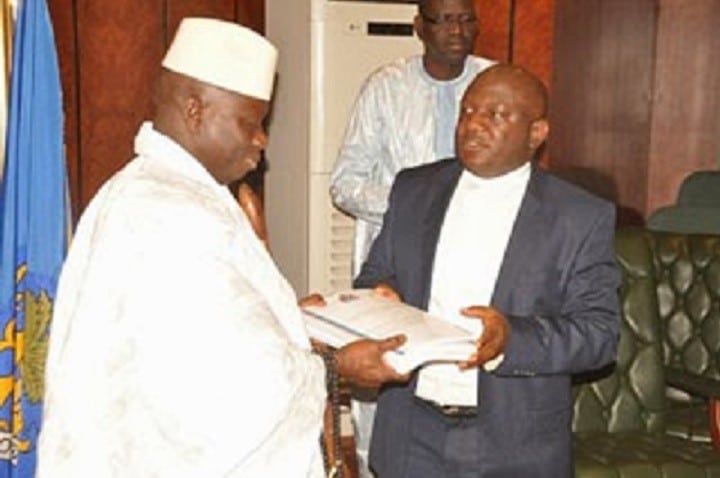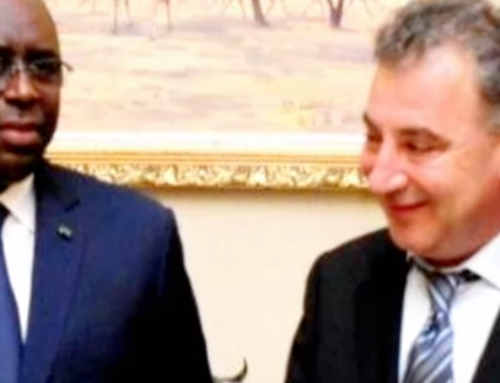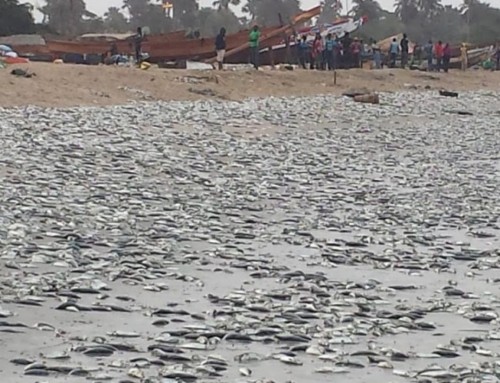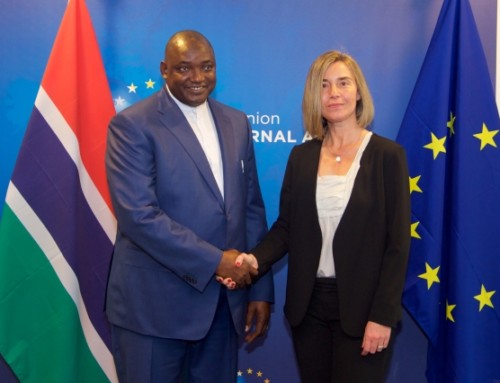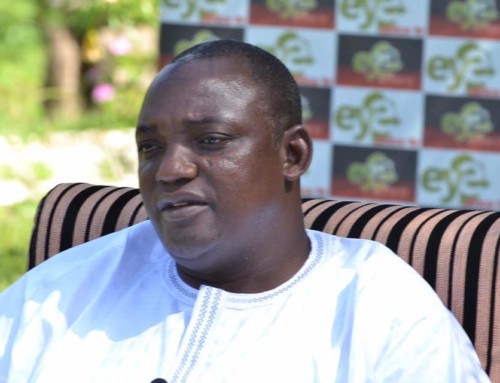On December 1, 2016, a presidential election was held in the Gambia and Adama Barrow was declared president-elect with 43.3% against the incumbent president Yahyah Jammeh who scored 39.6 % of the vote cast. Jammeh conceded defeat, but subsequently made a volt-face; annulled the election results, and then later sought to legally challenge the results in the Supreme Court. Relying on the ECOWAS certified results announced by Gambia’s Independent Electoral Commission (IEC), Barrow has vowed to assume power as president on the January 19, 2017, and plans for his inauguration are well on course. On his part, Jammeh has vowed not to hand over power until the Supreme Court determines the election petition in which Jammeh seeks to be declared the winner, but did not list Barrow as a party thereto. Barrow is proceeding with plans for his inauguration.
In support of Barrow, the international community, including ECOWAS, the United Nations Security Council, the African Union, the United States of America, France, the United Kingdom, amongst others, have broadly rejected Jammeh’s electoral volt face and endorsed the IEC announced poll results as both accurate and authoritative, and have threatened to use military intervention to compel Jammeh to hand over the presidency to Barrow. The ensuing electoral standoff has caused a sharp rise in political and economic uncertainties for the West African country.
At the moment, a ‘Unity Government’ is off the table. Domestic and international consensus is that Jammeh must step aside to avert an escalation of the political crisis, but by the year’s end, Barrow and Jammeh were each rigidly adhering to their respective positions, and regional mediation is yet to produce any tangible results. Jammeh has described any possible military intervention as both an infringement of Gambia’s sovereignty and an act of war, and has vowed to defend the sovereignty of the Gambia.
Apart from Barrow and Jammeh, the Gambian judiciary and ECOWAS are now key stakeholders in the transition process. The involvements of the judiciary and ECOWAS have informed current discourse touching on the legal bases and possible outcomes for a Judicial Review of the election results, and an ECOWAS military intervention.
Experiences from other West African countries like Nigeria, Ghana, and Cote D’Ivoire, show that courts have increasingly played a crucial role in settling election disputes across West Africa. By section 49 of the 1997 Constitution and section 100 of the Elections Act, an election petition is the legal pathway to determine any election dispute in the Gambia. So normatively, the petition filed by Jammeh is within the ambit of the law. Historically, in the case of Lamin Kebba Saho – PPP v Sheriff M Dibba – NCP (Suit No EP/2/1992), the Gambia Supreme Court laid an important precedence on the legal effect of an irregular election petition. Election petitions are sui generis actions which must be determined in accordance with the local realities. Thus, rather than rely on Nigerian case law, recourse must be had to Gambian case law and jurisprudence. If the principle in Kebba Saho is properly applied to the current election petition by Jammeh, then the omission of Adama Barrow as a party would prove fatal to the action and the petition would be dismissed. Seen from this standpoint, the Jammeh election petition is simply a spent force.
Popular and professional discontent against the judiciary has exposed the deep politicization and patronization of the judiciary in the Gambia. This has deeply eroded the independence of the judiciary, and in politically charged cases, the courts are seen merely as adjuncts to the incumbent. In a widely heralded Press Statement dated 12 December, 2016, the Gambia Bar Association highlighted some of the aspects of the politicization of the judiciary when they accused the Nigerian born Chief Justice Fagnbenle of waving and dancing in support of the incumbent Presidential convoy, and for attending political rallies and wearing apparels of the incumbent APRC party on the Court premises, as well as distributing APRC party apparel to the Court staff, and making preparations for the victory celebration of the incumbent President. They also accused him of interfering with judicial officials, and transferring cases to specific courts with a view to predetermine their outcomes, and for causing the dismissal of judges who handed down judgments which were deemed to be against the State’s interest.
While courts are the natural arbiters of justice in electoral disputes, politicized courts cannot serve as neutral umpires in politically charged actions. When courts are deeply politicized, losing incumbents are more confident to seize such courts with election disputes, with the intention of relying on the shallow legality of the resulting suspect judgment to undercut the democratic legitimacy of the President-elect. The specific example of Cote D’Ivoire confirms that a politicized judiciary would readily serve as an adjunct to the incumbent. This was specifically demonstrated in the case of Laurent Mbagbo who sought to use a politicized Ivorian court to reverse the election victory of Alassan Outarra. Thus, by instituting the election petition, Jammeh actually seeks to introduce the element of legality into the political stalemate. The current electoral impasse in the Gambia seem to be analogous with that of Cote D’Ivoire in that, the incumbent has lost, but seeks to use the court to overturn the elections results.
The allegations of politicization and patronage have deepened the confidence gap currently rocking the Gambia judiciary. The effect is that public confidence in the courts has waned and justice remains an illusion in matters of political nature. If we assume that Gambia judiciary is politicized and patronized, there are only two possible legal outcomes to be expected of the Jammeh election petition. Either, the election results will be annulled and fresh elections ordered, or the elections result will be reviewed and Jammeh proclaimed president elect. Thus, like Mbagbo, Jammeh would have used the courts to reverse the election results and enable his hold on power.
It is also very clear that if the election petition is not struck out or positively resolved before the due date, both Barrow and Jammeh are likely to separately inaugurate themselves as president and form rival governments. This would further deepen the political crisis and the country would remain bisected, with immediate consequences on domestic and sub regional peace and security.
War, whether civil or due to external intervention, is therefore eminent. However, an ECOWAS led military intervention would mitigate the loss in human life and property, and remains the only plausible option to uphold the election results in the Gambia. But, would such an intervention compromise the territorial sovereignty of the Gambia as touted by Jammeh? This question turns more on the dynamics of international law, and would be explored by looking at Gambia’s international commitments.
The legality of ECOWAS intended military actions in Gambia must be measured according to applicable rules of international law, particularly the international legal norms governing the use of force between states. The legality of the intended intervention to inaugurate the democratically elected government of President-elect Adama Barrow must be weighed in light of the general prohibition on the use of force in Article 2(4) of the United Nations Charter and the broader principle of non-intervention, recognized under customary international law.However, military intervention aimed at restoring or upholding a democratically elected government does not fall within the scope of the prohibition on the use of force contained in Article 2(4).
The ECOWAS pro-democratic intervention would rather support the territorial sovereignty of the Gambia by enforcing the political will and sovereignty of Gambians, which would otherwise be violated by the hold on power by Jammeh. Thus, the ECOWAS intervention would be consistent with the purposes of the United Nations as they seek to further human rights’ in accordance with the Preamble and Article 55 of the United Nations Charter, as well as the principles of self- determination. Since the intended military action by ECOWAS would not annex any part of Gambia’s territory, it would not threaten Gambia’s territorial integrity
Furthermore, the Gambia is a state party to the ECOWAS Protocol on Democracy and Good Governance (2001), which bears zero tolerance for power obtained or maintained by unconstitutional means. Most importantly, the Gambia is also a state party to the ECOWAS Protocol Relating to the Mechanism for Conflict Prevention, Management, Resolution, Peace-keeping and Security (1999) otherwise referred to as ‘The Mechanism’. Through the Mediation and Security Council, The Mechanism not only allows for a military intervention into member states, but it also explicitly orders this course of action in cases of severe governance problems.
From this perspective, the intended military intervention by ECOWAS would not constitute an infringement of Gambia’s territorial sovereignty. Rather, the ECOWAS invasion would be a lawful response to tyranny. Like Mbagbo, Jammeh must be forcefully removed, and if the crisis is thereby resolved, the Gambia would be well-placed to recover politically and economically.
Written by Nkea Emmanuel MRG (Judge Emeritus) LL.B, CAPA, MA (Wits)
